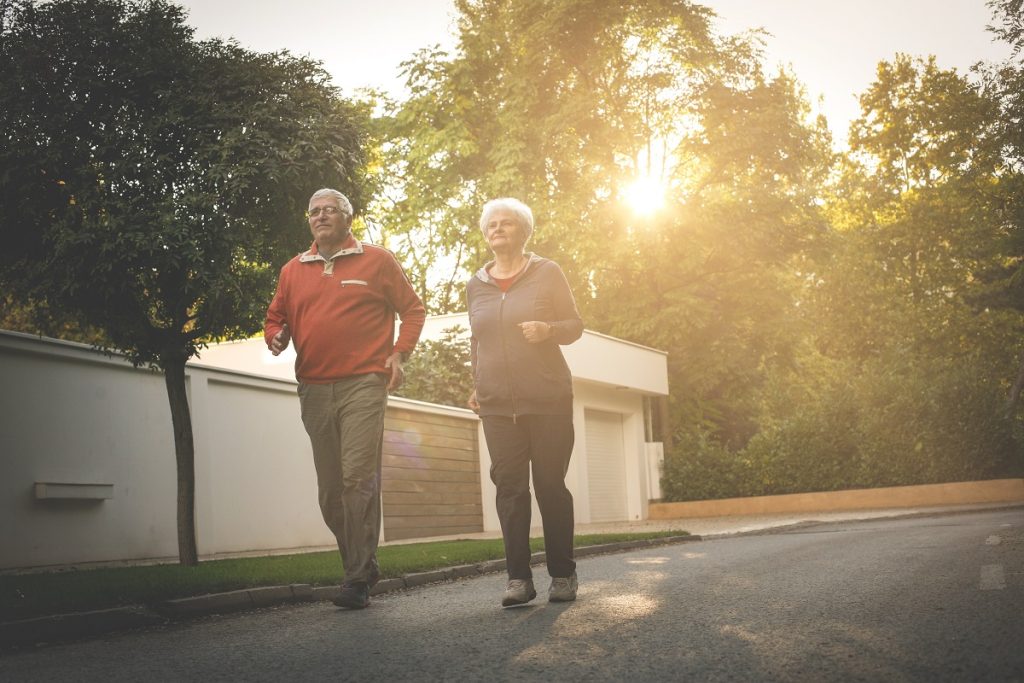- Exercise regularly to maintain muscle mass, improve bone density, and prevent chronic disease.
- Follow a balanced diet with plenty of fruits, vegetables, whole grains, lean proteins, and healthy fats.
- Stay socially active by attending social events, joining groups or clubs, and volunteering in the community.
- Get enough sleep by establishing a regular sleep schedule and avoiding stimulants close to bedtime.
- Utilize home health care services for additional medical assistance when needed.
Life is a series of stages, and as we move from one location to another, our body goes through some extraordinary transformations. Aging brings with it a lot of health risks and challenges. With advancing age, there is a decline in physical strength, mental agility, immunity, and overall health.
However, seniors can still make the most of their golden years by adopting healthy living practices that enhance their health, well-being, and quality of life. This blog post will discuss tips and strategies to help seniors stay healthy, active, and happy in their later years.
Exercise Regularly
Exercise is good for your health, but did you know that regular exercise can help seniors improve their mobility, balance, and overall wellbeing? Exercise can help seniors maintain muscle mass, improve bone density, and prevent chronic disease. This can include walking, swimming, cycling, or any physical activity that increases the heart rate and blood pumping. Here are some physical activities for seniors.
Walking
Walking is one of the most straightforward exercises that seniors can do. It can be done indoors, outdoors, or even at the mall. Brisk walking for 30 minutes daily can increase your heart rate, maintain your weight, and improve your circulation. As a low-impact exercise, walking is gentle on your joints and ideal for seniors who experience joint pain or arthritis.
Strength Training
Strength training exercises can increase muscle mass, tone your body, and help maintain bone density. Simple weight-bearing exercises, such as squats, lunges, or using resistance bands, can enhance balance and prevent falls. Resistance bands are ideal for seniors because they’re lightweight and can be carried in a purse or bag.
Balance Exercises
As we age, our balance may reduce, and we become more prone to falls. Balance exercises like standing on one leg or walking heel to toe using the support of a chair or wall can help to improve balance and prevent falls. Tai Chi is another excellent exercise that can enhance balance and strengthen muscles while being gentle on joints.
Water Aerobics
Swimming, water aerobics, and aqua jogging are low-impact exercises that help seniors maintain weight and flexibility and even reduce joint pain. Since water supports your body weight, activities in the water put less stress on your joints than land-based exercises.
Health Care Assistance

In some cases, seniors need additional medical assistance to stay healthy. For example, seniors may need help managing chronic conditions such as diabetes or high blood pressure. They may also require physical and occupational therapy, nutrition counseling, and even cognitive training if suffering from dementia or Alzheimer’s disease.
Home health care services provide seniors the medical assistance they need to stay healthy and independent. Home health aides can provide companionship, medication reminders, meal prep, and other essential tasks that help seniors maintain a healthy lifestyle.
Eat a Balanced Diet
A healthy diet is essential for seniors to maintain physical and mental health. Seniors should focus on a diet rich in nutrients, vitamins, and minerals. Seniors should create a nourishing diet with plenty of fruits, vegetables, whole grains, lean proteins, and unsaturated fats. Hydration is essential – ensure you drink adequate water throughout the day! Avoid eating processed foods or indulging in sugary drinks and saturated fats to keep your health in check and maintain healthy weight levels.
Stay Socially Active
Staying socially active is essential for seniors to maintain their mental health and well-being. Social isolation can lead to feelings of loneliness, depression, and anxiety. Seniors should maintain meaningful connections with family, friends, and other seniors by attending social events, joining clubs and groups, and staying active in their community. Seniors can also volunteer, attend classes, or participate in cultural activities to remain socially engaged and connected.
Get Plenty of Sleep

Sleeping is crucial for seniors to maintain their physical and mental health. Seniors should aim for 7-8 hours of sleep each night to feel rested and refreshed. Seniors should establish a regular sleep schedule and avoid stimulants such as caffeine or nicotine, which can interfere with sleep quality. Seniors should also create a conducive sleep environment by keeping the bedroom dark, quiet, and calm and limiting screen time before bedtime.
The Bottom Line
Aging is a natural and inevitable part of life, but it should not discourage seniors from enjoying their golden years to the fullest. By following these healthy living tips, seniors can maintain their health, well-being, and independence. Remember, it’s never too late to adopt healthy habits and make positive changes in your life. With a little effort and determination, seniors can stay healthy, active, and happy well into their later years.

